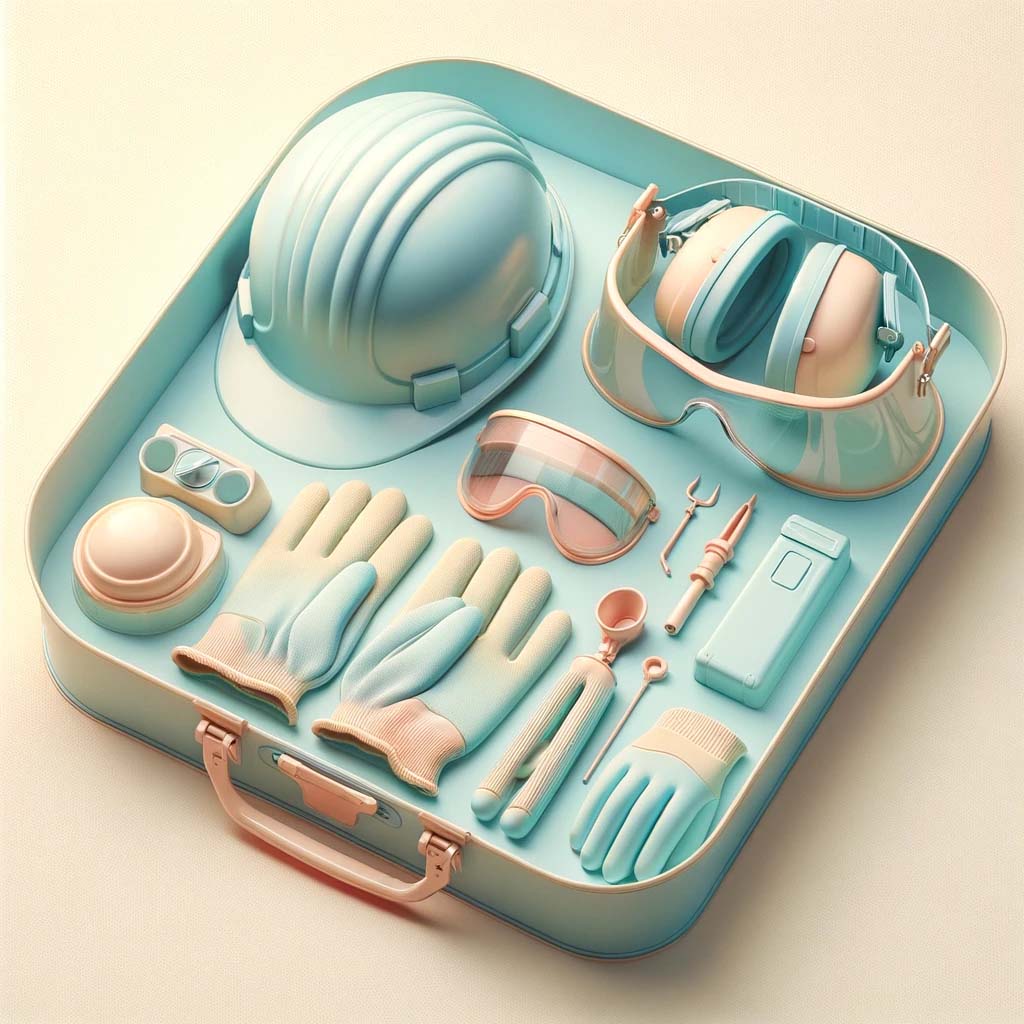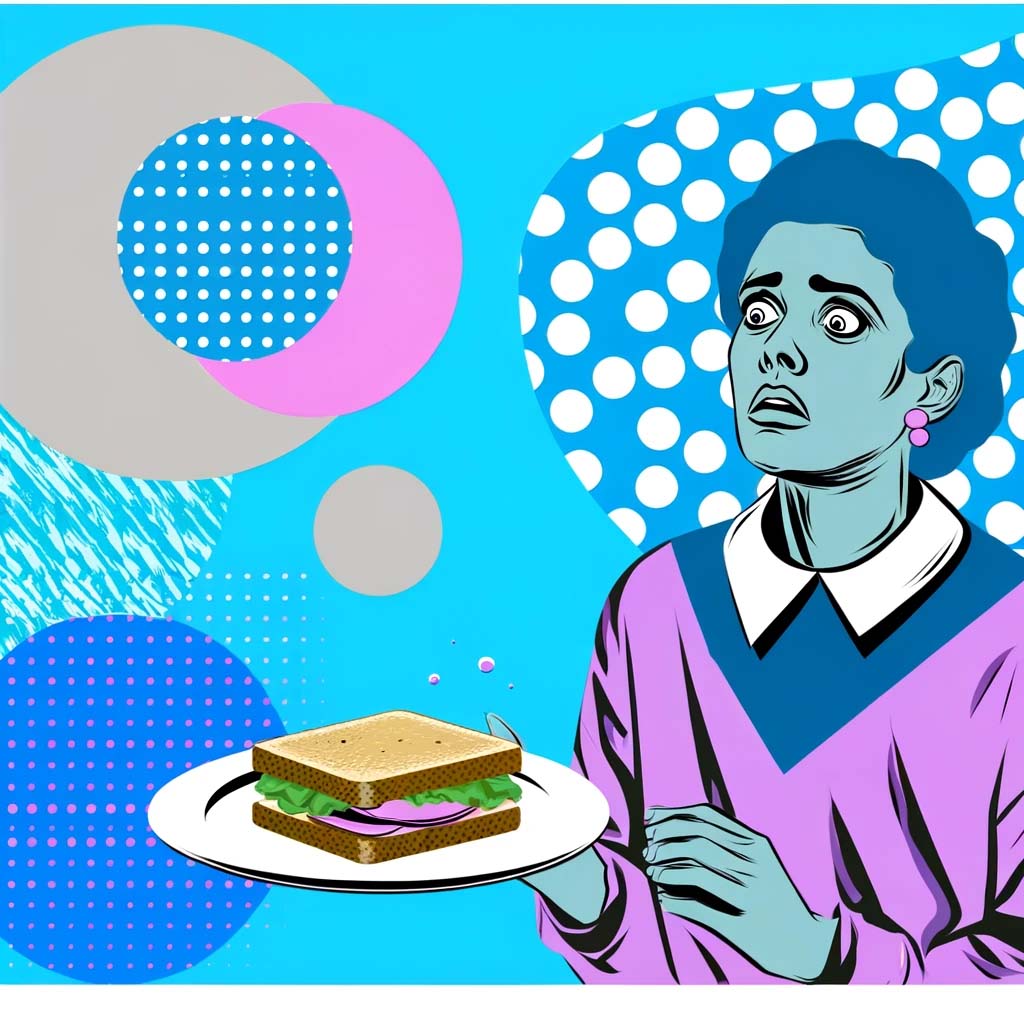If you ask a “normal” woman what they carry in their bags, the answer might be a good book, keys, makeup, maybe snacks. Now, if you ask me the contents look quite different. I live with emetophobia, the intense and often debilitating fear of vomiting. Emetophobia goes far beyond a simple dislike. It can dictate where you go, what you eat, and with whom you socialize. On bad days, it can feel like my whole world shrinks to avoid any potential trigger related to nausea or sickness.
Over the years, I’ve developed an emetophobia safety toolkit. It’s a set of physical and mental tools that help me weather those trigger-filled moments and the panic that often comes along for the ride. It’s by no means a cure, but it has made an enormous difference in my life. I have it with me all the time. I carry everything with me in a waist bag. Luckily, they became fashionable a few years back. It is perfect because it makes it easy to carry and I can have my safety kit ready if needed (especially while travelling).
Physical Essentials
- Medication: Anti-nausea medication for emergencies. Just knowing I have it is often enough to calm the beginnings of an anxiety spiral. I also use anti-anxiety medication when needed, as panic attacks and emetophobia unfortunately go together.
- Essential Oils: Peppermint and ginger essential oils are my go-to remedies. The scent is calming, and sometimes a little aromatherapy is all I need to ground myself. I carry small roll-on bottles for on-the-go use.
- Hard Candy: Sucking on ginger candies or peppermints does double duty. The strong flavors provide a distraction, and the ginger acts as a natural stomach-soother.
- Chewing-gum: The strongest mint I can find. Chewing on a gum helps me being distracted from the physical sensation I can feel within my own body, my mouth etc…
- Water Bottle: Staying hydrated is key for managing nausea. It also helps me focus on something basic and essential when anxiety creeps in.
- Headphones: I always listen to music on a normal basis but if I feel anxious, I will use my noise cancellation headphones and put some relaxing music to help in moments of panic.
- A small plastic bag: This one might be odd but I carry with me a sickness bag. The idea of being messy makes me nervous and I would prefer being ready in case I have to be ick.
Mental Essential
- Grounding Techniques: When panic starts to rise, I need to pull myself back to the present moment. The 5-4-3-2-1 method comes in handy: 5 things you see, 4 you touch, 3 you hear, 2 you smell, 1 you taste.
- Exposure Therapy Work: My therapist helps me with exposure therapy, where I gradually and safely face my fears. I keep reminders of my progress – a little note that says, “You ate at that restaurant and were fine!”– to pull out when my mind goes into worst-case-scenario mode.
- Mantras: Simple phrases like “This will pass,” “You’re okay or “Breathe” repeated over and over can help me pull through the worst of an anxiety spike.
- Distractions: Sometimes, focusing intently on something else is the only way to break the anxiety loop. I have games on my phone, a list of funny videos, or anything that can shift my mental focus, even for a moment.
- Self-Compassion: Emetophobia can make me feel frustrated, weak, or embarrassed. Reminding myself it’s an anxiety disorder and that I’m doing my best is key. A little self-kindness goes a long way.
Building your own toolkit
My toolkit is deeply personal. Yours will be too! Here’s how to get started:
- Notice Your Triggers: What sets your emetophobia off? Crowds, food, smells? Identifying patterns helps you prepare.
- Experiment: Try different items and techniques. What makes you feel calmer, even a little bit?
- Be Flexible: Your toolkit is a work in progress. What helps one day might not another, and that’s okay.
- Practice is Key: Using your mental toolkit skills when you’re not panicking makes them easier to access during an attack.
A Note of Hope
Living with emetophobia can feel incredibly isolating. You’re not alone. Your safety toolkit won’t magically erase the fear, but it becomes a shield, an arsenal to remind you of your strength as you navigate this anxiety disorder. Knowing you have the tools to cope offers a sense of control that can be a lifeline on the toughest days.
Please remember: If your emetophobia is severely impacting your life, seek help from a qualified mental health professional.





0 Comments